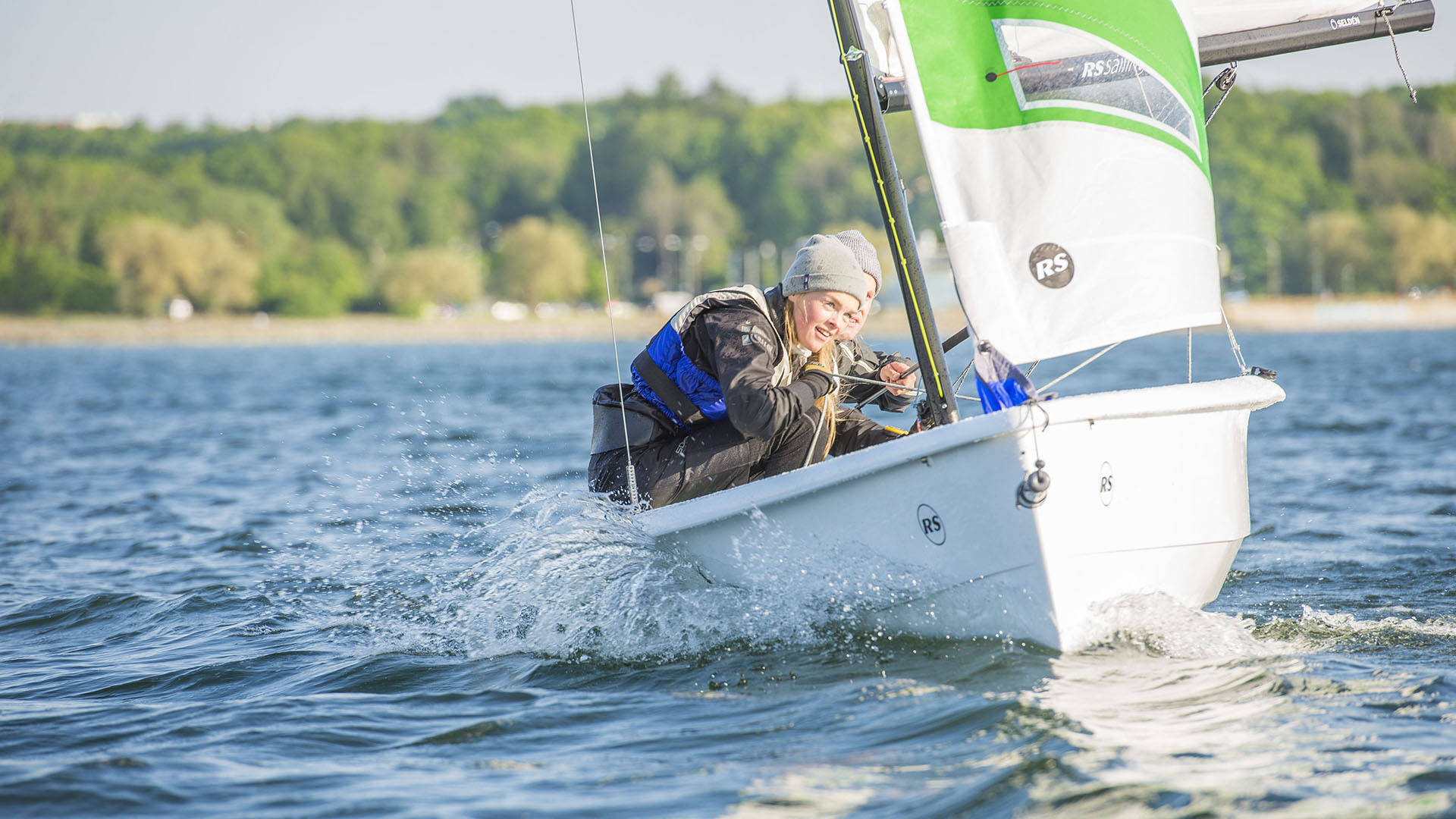When people think of summer sailing, they usually think of kids in boats, out on the water, playing games and learning. This past year, summer sailing looked a little different. With the Covid-19 pandemic forcing camps and summer programs to adapt to everchanging rules and regulations, programs developed creative ways to keep kids on the water and sailing.
Courageous Sailing Center, located in Boston, Massachusetts spent most of the summer running their program virtually. To bring Courageous into students’ homes, they packed and delivered materials so they could run their program virtually. “Each day students were brought together online to tie knots, test their knowledge and to just hang out,” Executive Director Dave DiLorenzo says. Luckily, with proper distancing measures, Courageous was able to get back on the water by the end of the summer. Some of what made that possible was the use of the RS Quest. Easily adaptable for 2-4 sailors, modifications to the Quest allowed for socially distant sailing. Additionally, the sails were simple to reef and made it possible to sail safely and comfortably with fewer kids in each boat. Many programs followed similar methods to maintain social distancing.
Siebel Sailors Program out of the Downtown Sailing Center in Baltimore, Maryland creatively adapted their boats to allow for single handed sailing. “By adding a jib halyard extender attached to the bow handle, we created a “forestay” for the RS Feva that made it possible to do singlehanded sailing,” Program Coach Janel Zarkowsky says. “It was useful for boarding and deboarding the boat as well as departing and returning to the dock or beach.” RS boats make it easy to adapt to various numbers and skillsets. While many programs adapted their boats the most ubiquitous safety protocol was increased cleaning.
Known for being stable, easy to rig and fun to sail, the RS Quest is popular among youth sailing programs. The Cohasset Sailing Club in Massachusetts however, discovered an added benefit to their fleet of Quests, they’re easy to clean. “We had thirty minutes between classes and would wipe down everything, including the boats,” program director Mary Kate Cervin says. “The Quests were a godsend because they were so easy to clean.” Fiberglass boats are far more delicate and repeated cleanings with alcohol sprays and cleaners can remove the protective coating and damage the fiberglass. RS boats are far more durable and can be cleaned without damage.
As camps and programs look towards the 2021 season, they are using the lessons they learned last year to prepare. Some programs even discovered that certain changes made as a result of Covid-19 are now becoming program mainstays; “to reduce the number of kids at the club at a time we did one-on-one lessons with our beginner sailors for the first two weeks,” Cervin says. “It was so successful that this year all first-year sailors will have two weeks of one-on-one lessons.” We are excitedly looking towards this summer and getting back out on the water, but this past year showed us that with a little patience, resourcefulness and great boats, there is always a way to get kids out on boats and learning.














